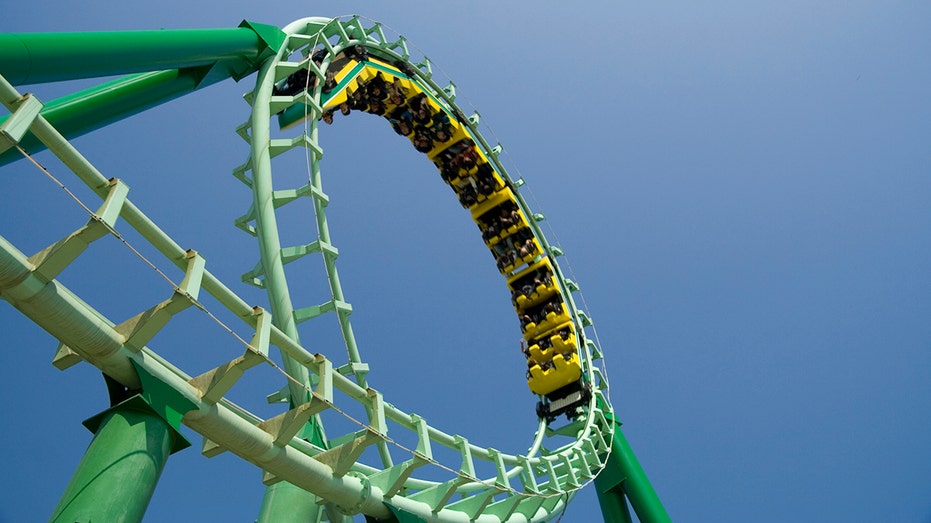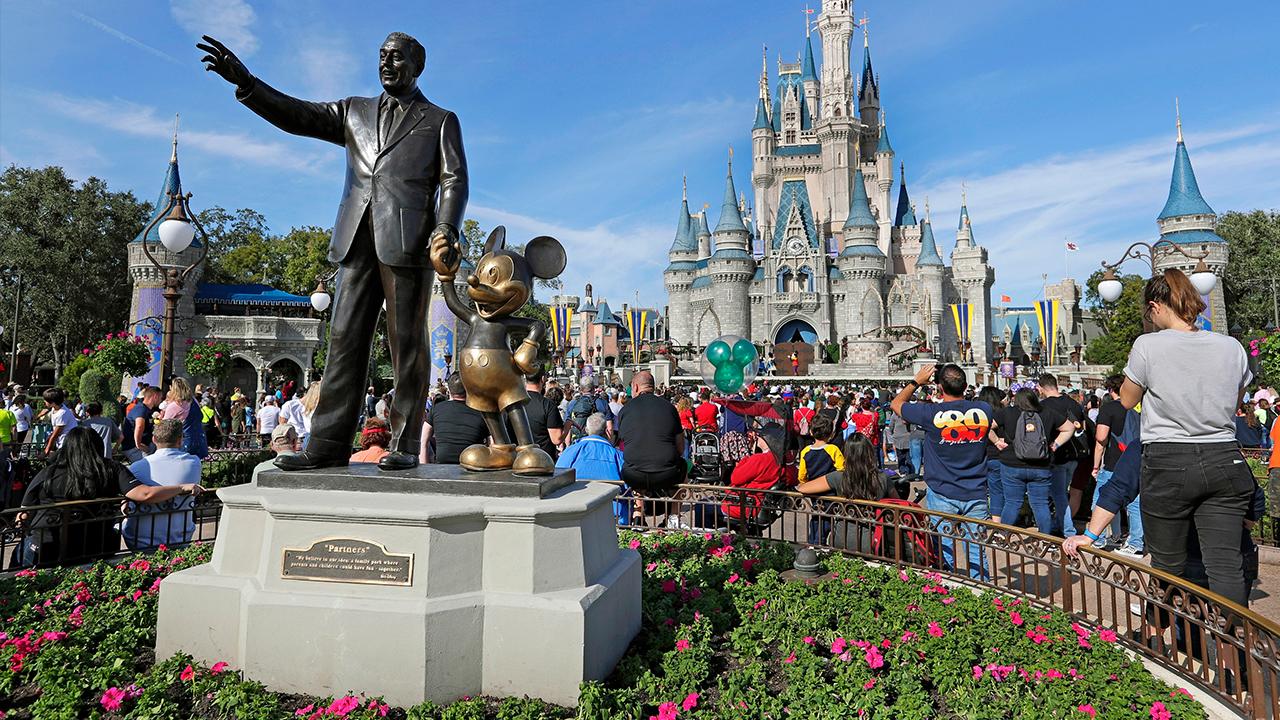As amusement parks reopen, will Americans ride rollercoasters in a pandemic?
Executives, investors worry about season-pass sales
Get all the latest news on coronavirus and more delivered daily to your inbox. Sign up here.
At this time of year, Brian Witherow can usually hear the screams of riders on some of the world's fastest roller coasters from his office in the middle of Cedar Point, a 150-year-old amusement park in Sandusky, Ohio.
Mr. Witherow, the chief financial officer of the park's operator, Cedar Fair LP, says it's quiet right now in the park, which juts into the southwest corner of Lake Erie. He is at his desk struggling to manage the financial fallout of a monthslong shutdown at the park and others owned by the company across the U.S.
HERE'S THE TEAM LEADING DISNEY THROUGH THE POST-CORONAVIRUS WORLD
"We've been as hard-hit as any industry out there," Mr. Witherow said in an interview. "There's no middle ground. We're not a restaurant that can still do carryout. We went from being open to 100% shuttered."
Now, as some American theme parks gingerly begin to reopen this week, they are asking whether cash-strapped, jittery thrillseekers will return in the face of a still-spreading coronavirus pandemic.

(istock)
The parks, which closed across the nation in March, are requiring masks and temperature checks and social distancing for guests. But it remains uncertain whether enough people will venture out to the parks to stave off a financial shock for the companies.
DISNEY WORLD SETS JULY 11 REOPENING DATE, UNVEILS CORONAVIRUS SAFETY PRECAUTIONS
Six Flags Entertainment Corp., Comcast Corp.'s Universal Orlando and SeaWorld Entertainment Inc. have plans to open parks in the next week or two. Walt Disney Co. is targeting opening some Florida parks in July. Cedar Fair hasn't disclosed an opening date for any of its theme parks.
| Ticker | Security | Last | Change | Change % |
|---|---|---|---|---|
| SIX | NO DATA AVAILABLE | - | - | - |
| CMCSA | COMCAST CORP. | 31.37 | +0.52 | +1.69% |
| DIS | THE WALT DISNEY CO. | 108.69 | +3.71 | +3.53% |
| SEAS | NO DATA AVAILABLE | - | - | - |
Six Flags, SeaWorld and Cedar Fair shares have plunged more than 40% year-to-date. Disney, with a more diversified portfolio of assets such as its streaming service Disney+, is down about 18%.
SIX FLAGS GOES BACK TO THE FUTURE FOR WILD SAFARI REOPENING IN AGE OF CORONAVIRUS
None of the companies face the immediate threat of bankruptcy, credit analysts say. Standard & Poor's says Six Flags, SeaWorld and Cedar Fair have enough cash and credit on hand to survive full closure of their parks throughout 2020. All three companies issued debt to bolster their balance sheets as the pandemic forced them to close down. Mr. Witherow says Cedar Fair could weather a complete shutdown through 2021.
The question for investors is how financially stable the companies will be on the other side of the pandemic. That will determine whether the parks can pursue expansion plans such as new rides and hotels, key to how they compete against rivals.
Theme-park companies will have "a significant amount of leverage and liquidity risk depending on what the recovery looks like," said S&P analyst Emile Courtney.
A big uncertainty: season-pass sales. For years, theme parks -- especially regional operators such as Six Flags and Cedar Fair -- competed by building bigger, faster and zanier rides. From Six Flags' 50-mile-per-hour Batman: The Ride to Cedar Point's iconic Millennium Force, the companies have laid out big bucks to lure visitors.
SEAWORLD ANNOUNCES PLANS FOR ORLANDO PARK TO REOPEN. HERE'S WHAT TO EXPECT
In recent years, theme parks have increasingly shifted their business models, and marketing budgets, toward season passes, which provide a stream of cash from loyal customers. That helps steady revenues and is attractive to big investors.
"All theme parks like to have that recurring revenue stream that's represented by season passes," said James Hardiman, an analyst at Wedbush Securities. He said the concern for the companies isn't so much that fewer new people buy season passes, it's that pass holders from last year don't pony up in 2020, forcing operators to build new long-term relationships from scratch.
Season passes last year accounted for 58% of attendance at regional theme parks, up from about one-third, according to Goldman Sachs. At Cedar Fair, 53% of its attendance came from season-pass holders in 2019, up from 27% in 2009. Season-pass and other all-season product sales at the company last year were up 40%, or $40 million, from the previous year.
The pace of gains slowed in the first quarter, with season-pass and all-season sales up just 30% from a year ago as the pandemic spread. Year-over-year sales have declined since mid-March, according to Mr. Witherow, the Cedar Fair CFO.
Cedar Fair is burning through about $30 million to $40 million a month, he said, in part due to interest payments on $1 billion in new debt it issued this year to shore up its balance sheet, as well as ongoing operating expenses. The company furloughed nearly all of its part-time staff as it shut down its parks, the CFO said.
To stave off a wave of season-pass cancellations, Cedar Fair and Six Flags are extending passes into 2021. More than half of Cedar Fair's season-pass holders said in a survey they planned to return to its parks soon after they reopen.
Six Flags, based in Grand Prairie, Texas, gets 63% of attendees from its "active passes," which includes members and season-pass holders. That's up from 50% in 2014, according to Wells Fargo Securities. On an April earnings call, Six Flags said its active-pass base was down 20% through April from last year.
GET FOX BUSINESS ON THE GO BY CLICKING HERE
One potential bright spot for regional theme parks: Many people who don't want to fly or spend for big vacations will choose spots they can drive to. That could benefit park operators such as Six Flags and Cedar Fair, where more than 90% of attendees arrive by car. SeaWorld says 85% of its visitors come from within driving distance of its parks.
Mr. Witherow says that while the current crisis is unique, there's some precedent for such a trend. As the 2008 global financial crisis began to fade, Cedar Fair's parks benefited from consumers still wary of expensive trips, he says.
"We're hopeful that's still the case on the back side of Covid-19," he said.
CLICK HERE TO READ MORE ON FOX BUSINESS




















